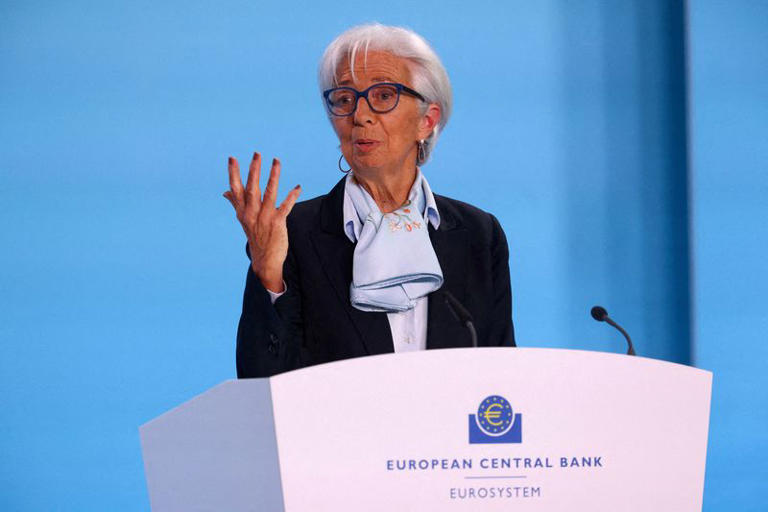The European Central Bank (ECB) is poised to make a significant decision regarding interest rates, likely cutting them from record highs in response to recent developments in inflation. Over the past months, inflation across the eurozone has moderated from its peak, aligning closer to the ECB’s target of around 2%. This decline in inflationary pressures has provided the ECB with a rationale to reverse its aggressive interest rate hikes, which were initially implemented in response to surging prices following geopolitical events like Russia’s invasion of Ukraine.
This anticipated rate cut comes amidst a broader trend among central banks globally, with counterparts in Canada, Sweden, and Switzerland already taking steps to ease monetary policy. However, despite initial expectations for a significant easing cycle, uncertainties have emerged regarding the durability of inflation moderation in the euro area, mirroring similar concerns seen in the United States.
Amid these uncertainties, ECB President Christine Lagarde and her colleagues are likely to adopt a cautious approach, refraining from committing to further rate reductions beyond the immediate cut. Instead, they are expected to emphasize the importance of data-driven decision-making, highlighting the need for borrowing costs to remain at levels that effectively mitigate inflationary pressures.
While the consensus among economists points to an interest rate cut by the ECB, not all market participants view it favorably. Some analysts, such as Gabriele Foà of Algebris Investments and Greg Fuzesi of JPMorgan, have expressed reservations, questioning the timing and necessity of such a move. They argue that recent economic indicators, including wage growth and consumer demand, do not justify an immediate rate cut and suggest that the ECB may be premature in its decision.
Furthermore, the ECB’s chief economist, Philip Lane, has cautioned against interpreting a rate cut as a definitive solution to inflationary challenges, underscoring the need for continued vigilance and flexibility in monetary policy. Despite expectations for additional rate cuts later in the year, market sentiment has shifted, with investors now pricing in fewer rate reductions than previously anticipated.
One of the primary factors influencing the ECB’s decision-making is the evolving economic landscape in the eurozone, including trends in inflation, wage growth, and consumer spending. Additionally, developments in the United States, particularly actions taken by the Federal Reserve, will shape the ECB’s policy trajectory, underscoring the interconnectedness of global financial markets.
In conclusion, while the ECB is expected to announce an interest rate cut in response to moderating inflation, uncertainties persist regarding the durability of this trend. The central bank faces the challenge of balancing its objectives of supporting economic growth while maintaining price stability, a task that requires careful consideration of evolving economic conditions both domestically and internationally.
